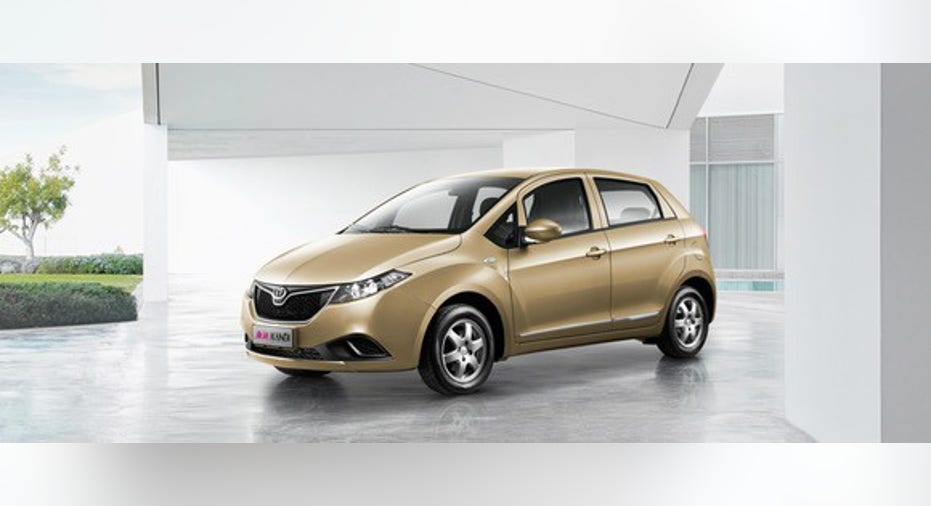Kandi Technologies Reports a Loss on Delayed Government Payments

Kandi's Global Hawk K17A is an electric sedan with a claimed range of 151 kilometers. Image source: Kandi Technologies.
Chinese electric-vehicle maker Kandi Technologies (NASDAQ: KNDI) reported on Nov. 9 that it lost $566,000 in the third quarter, down from a $2.3 million net profit in the year-ago period, as the Chinese government continued to delay payments of 2015 subsidies to electric-vehicle makers pending an industrywide review.
Kandi Technologies' earnings: The raw numbers
Data source: Kandi Technologies.
What happened with Kandi Technologies in the third quarter
"China's central government preceded a review on the subsidies paid to all the EV manufacturers, which caused the 2015 subsidy payments to remain unpaid industrywide," Kandi CEO Hu Xiaoming said in a statement. "The delay in subsidy payment heavily impacted the JV Company's production and sales, which resulted in a significant decrease in our EV parts sales."
The results were stark. Kandi's total third-quarter revenue of $6.4 million was down 87.4% from $50.5 million in the third quarter of 2015. Electric vehicle (EV) parts sales fell 90.4% to $4.7 million from $49 million a year ago.
Kandi Electric Vehicles Group Company, a 50-50 joint venture between Kandi Technologies and Chinese automakerGeely Automobile Holdings(NASDAQOTH: GELYF), sold just 184 EV products in the third quarter, down 96.9% from last year.
"Due to the delayed government subsidy payments, we have experienced decreased cash flow in the third quarter of 2016, which inevitably impacted the company's financial performance in this quarter," CFO Wang Cheng said in a statement. "We expect our cash flow and financial position will be improved in the coming quarters once the central government concludes its review and resumes its subsidy payments."
Despite the delayed payments, the joint venturelaunched an all-new battery-electric vehicle in August. The Global Hawk K17A sedan, pictured above, has a 35-kilowatt motor, a 20 kilowatt-hour battery, a claimed range of 151 kilometers, and a price of 79,800 yuan (about $11,800) after subsidies.
Kandi's CEO: Looking ahead to 2017
Here's what CEO Hu Xiaoming had to say about the subsidy issue and Kandi's prospects in 2017:
Hu said that he is confident that Kandi's products will continue to be eligible for the government subsidies, which will continue through 2020. The company is already preparing for the end of the subsidies.
"Kandi is currently developing the EV products after year 2020, which do not rely solely on subsidy payments and is identifying key areas of focus in which to ensure Kandi's sustained growth and improve Kandi's earnings capabilities," Hu said.
10 stocks we like better than Kandi Technologies When investing geniuses David and Tom Gardner have a stock tip, it can pay to listen. After all, the newsletter they have run for over a decade, Motley Fool Stock Advisor, has tripled the market.*
David and Tom just revealed what they believe are the ten best stocks for investors to buy right now... and Kandi Technologies wasn't one of them! That's right -- they think these 10 stocks are even better buys.
Click here to learn about these picks!
*Stock Advisor returns as of November 7, 2016
John Rosevear has no position in any stocks mentioned. The Motley Fool recommends Kandi Technologies. Try any of our Foolish newsletter services free for 30 days. We Fools may not all hold the same opinions, but we all believe that considering a diverse range of insights makes us better investors. The Motley Fool has a disclosure policy.



















